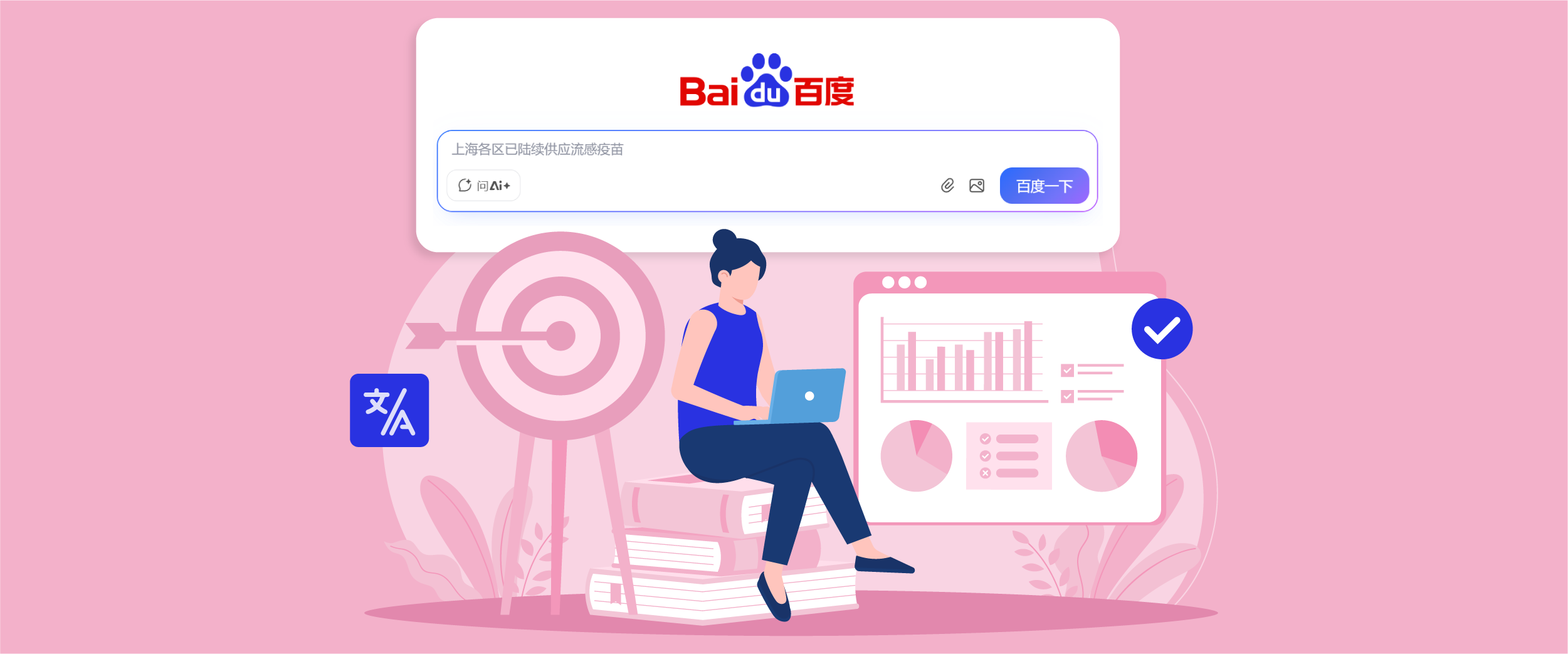Expanding into the Chinese digital market requires more than just translating your website. With Baidu holding most of China’s search engine market, businesses must adapt their strategies to align with its unique ranking factors and strict regulations. Advanced Baidu SEO integration with automatic website translation plugins allows companies to localize content effectively while ensuring it performs well on Baidu’s search results.
Unlike Google, Baidu emphasizes localized hosting, Chinese-language relevance, and compliance with internet regulations. This means that translation quality, technical setup, and SEO adjustments must all be tailored for Baidu. By combining automation with strategic optimization, businesses can maximize visibility, improve user trust, and unlock growth in one of the world’s most competitive online markets.
Key Baidu ranking factors & algorithm preferences

Baidu has rules and algorithm preferences that differ from those of other global search engines like Google. To compete in the Chinese market, businesses must understand Baidu’s ranking factors that influence a site’s visibility. From keyword usage and site speed to regulatory compliance, each element determines whether users in China will easily discover your site.
Content relevance and keyword placement
Content is at the heart of SEO, and on Baidu, the relevance of content to the keywords users search for is one of the most important factors. Baidu favors content that clearly features the target keywords in titles, headings, and descriptions. This means businesses must conduct keyword research in Mandarin and ensure the content truly answers local search needs.
Additionally, Baidu is still quite strict about keyword placement. Consistent use of keywords throughout the article, without overstuffing, can increase the chances of ranking well. What should be avoided is keyword stuffing, as Baidu can downgrade sites it considers too manipulative.
Site performance and mobile optimization
Baidu highly values site speed. Slow-loading websites often struggle to achieve high rankings. This is especially important in China, where internet infrastructure and the Great Firewall can affect international site speed. Optimizing images, using caching, and ensuring a responsive server are crucial steps.
Beyond speed, mobile optimization is also critical. The majority of internet users in China access the web via mobile devices. Baidu has specific standards for mobile-friendly sites, meaning websites that perform well on smartphones will be prioritized. In short, responsive design is no longer optional, it’s essential.
Local hosting and ICP licensing
Baidu prioritizes sites hosted within China. Websites with domestic servers usually load faster for users and are favored by Baidu’s algorithm. For international businesses, this often means using Chinese hosting or at least a CDN with strong connections to Chinese networks.
In addition to hosting, obtaining an ICP (Internet Content Provider) license is also crucial. Without this license, it’s difficult for a site to gain full trust from Baidu and Chinese users. The license demonstrates compliance with local regulations, which is a vital aspect of building credibility.
Link building and authority signals
Like Google, Baidu evaluates a site’s quality through backlinks. However, Baidu prefers links from local sources or Mandarin-language websites. This means building backlinks from Chinese forums, directories, or local media is far more effective than relying on international backlinks.
Beyond backlinks, other authority signals such as brand mentions, presence on local platforms, and social interactions can also influence rankings. These factors show that your site is technically present and relevant and trusted within the Chinese digital ecosystem.
Freshness and content updates
Baidu highly values fresh content and regular updates. Its algorithm rewards sites that frequently publish new posts, add updated information, or refresh old articles. This differs from Google, which balances evergreen content with fresh content.
For this reason, Baidu SEO strategies should include a consistent content calendar. Even updating older articles with new insights can send positive signals to Baidu. Consistency in content updates also helps maintain user engagement.
Below from Sina News, you can see how Baidu highlights the latest headlines with timestamps and updated sections. This illustrates how freshness signals, such as newly published articles or updated news, are prioritized in Baidu’s search ecosystem.
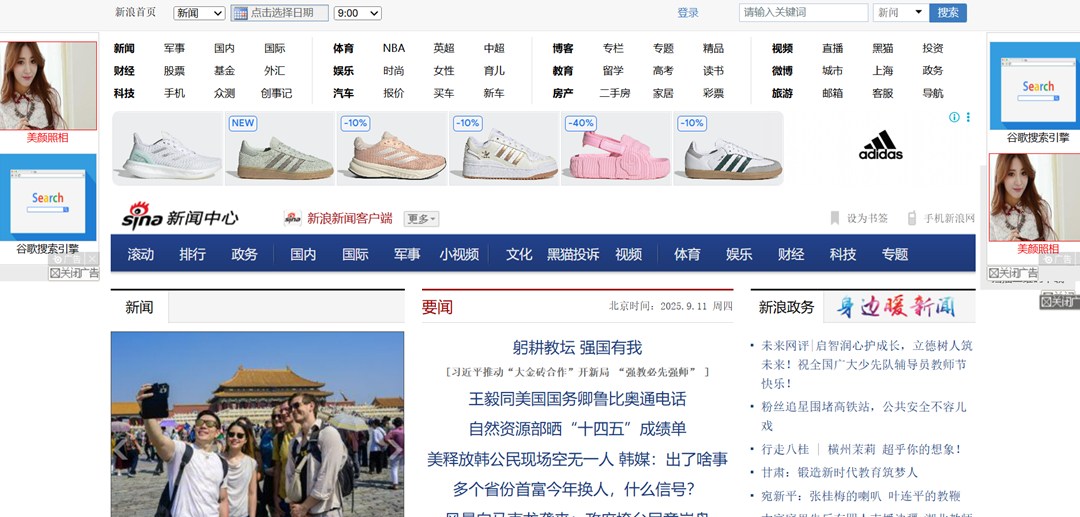
Prioritization of Chinese-language sites
It’s undeniable that Baidu prioritizes sites with content written in Mandarin. As the search engine is designed to serve Chinese users, foreign-language content often receives less attention. Therefore, translating your website into Mandarin, whether via automatic plugins or a combination of automation and human editing, is essential.
But more than just translation, the content should feel natural to local readers. Mandarin that feels stiff or overly literal can reduce user trust. Adjusting tone, terminology, and examples to match local culture makes your site more relevant to the target audience and more favored by Baidu.
The screenshot below shows Baidu search results for the keyword ‘smartphone price’. Although the query is in English, most of the top results still appear in Mandarin, reflecting Baidu’s preference for local-language content.
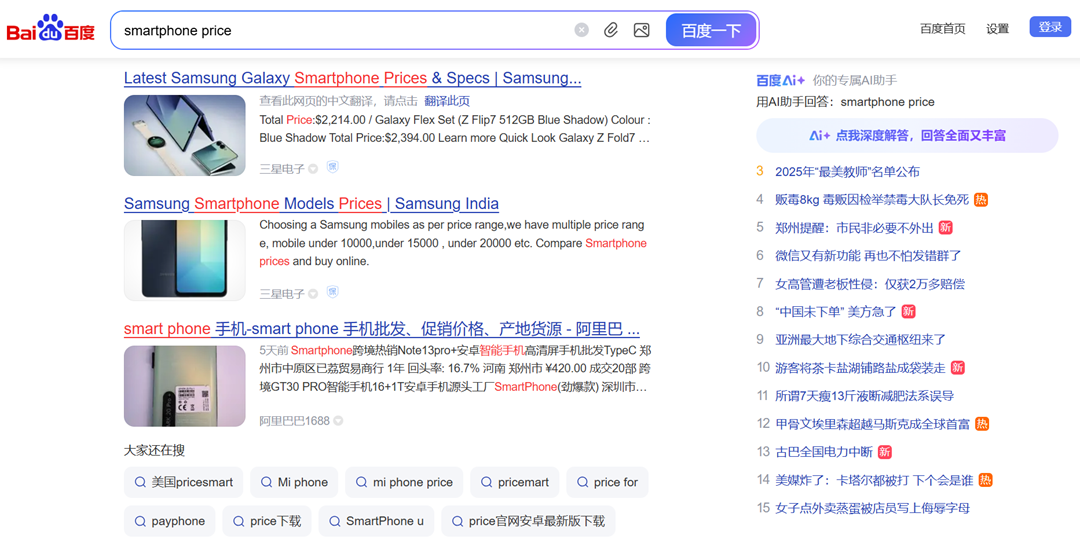
To illustrate further, the next example uses the keyword ‘手机价格’ (smartphone price in Mandarin), where all the results are fully localized in Chinese. This comparison highlights why offering content in Mandarin is essential for visibility on Baidu.
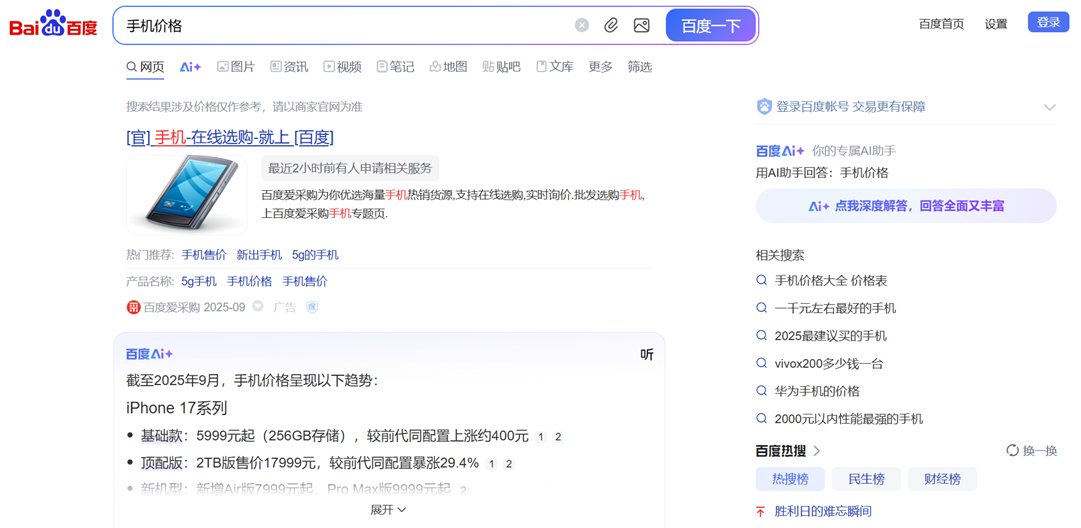
Optimizing translation quality for Chinese search behavior

When targeting the Chinese market, translation quality is critical in how users interact with your website and how Baidu evaluates your content. Poorly translated content risks confusing users and reduces your site’s credibility, leading to lower rankings. To succeed, automatic translations must be carefully adapted to reflect Chinese language norms, cultural preferences, and search behavior.
Adapting automatic translation for Chinese users
Automatic translation can serve as a strong foundation, but it often struggles with nuances in the Chinese language. For example, certain English phrases may translate literally but fail to convey the intended meaning to Chinese audiences. This is especially important because Baidu’s algorithm considers user engagement signals, such as bounce rates, to evaluate content quality. If users feel that the translation is unnatural or confusing, they are more likely to leave quickly, negatively impacting rankings.
To address this, businesses should fine-tune automatic translations using cultural and linguistic adjustments. For instance, instead of directly translating “cloud storage,” adapting it to the commonly used Chinese equivalent “云存储” ensures the term is both familiar and searchable. This small adjustment makes your content more natural for users and aligns better with local search expectations.
Some tools, such as Linguise translation service, bridge the gap between automation and human refinement. With its live editor, businesses can automatically translate content into Mandarin and then make quick adjustments directly on the site. This combination not only saves time but also ensures the translation feels authentic to local users while meeting Baidu’s quality standards. By leveraging a hybrid approach like this, companies can improve user engagement and achieve stronger SEO results in China.
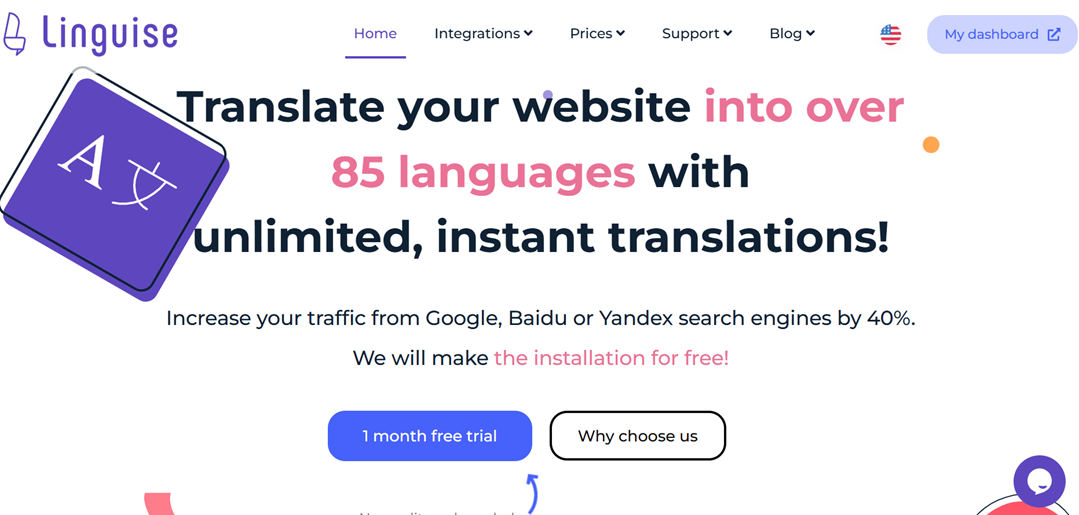
Enhancing readability and user trust

Readability goes beyond grammar, it’s about ensuring the content flows naturally for the target audience. Chinese readers expect concise, clear, and culturally relevant language. Overly technical or awkwardly phrased translations can make your site seem untrustworthy or unprofessional, which discourages visitors from staying or converting.
User trust is also linked to content presentation. Using consistent terminology, proper tone, and avoiding machine-like wording builds credibility. For example, a product description that reads smoothly in Chinese can create a stronger emotional connection than a direct machine translation. This improves user satisfaction and signals to Baidu that your site provides real value.
Keyword localization and search intent
Directly translating keywords rarely delivers the best results. For example, an English keyword like “cheap flights” might literally translate word-for-word, but Chinese users often search with different phrasing, such as “特价机票” (special price tickets). If your site sticks with literal translations, you risk missing out on valuable traffic opportunities because the content won’t match what people are actually typing into Baidu.
Below is an example of Baidu Keyword Planner showing localized keyword results.
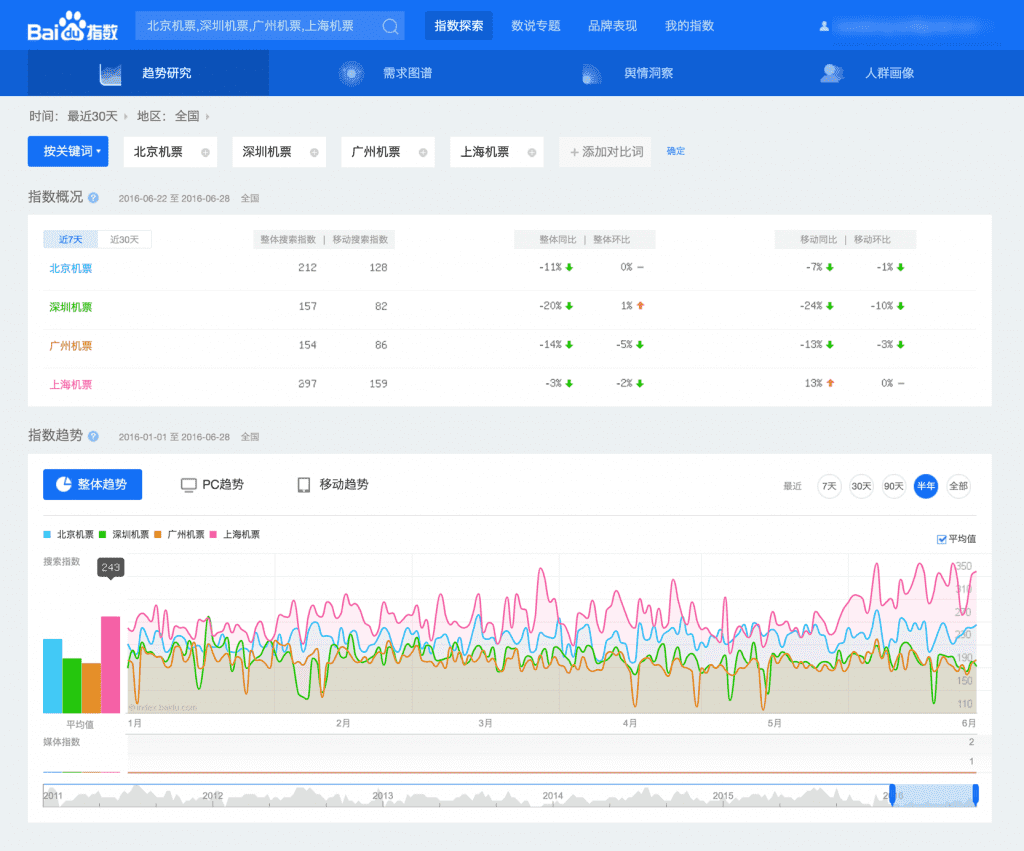
International keyword means adapting your SEO strategy to reflect how Chinese users search. This requires researching user behavior and identifying terms with strong search volume using tools like Baidu Keyword Planner or other local SEO platforms. By aligning your content with these localized terms, you’re not just matching user intent — you’re positioning your website for higher visibility and stronger engagement in Baidu’s ecosystem.
With Linguise, businesses can take this a step further. The platform allows you to adjust keywords directly inside the translation interface, making aligning your translated content with Chinese search intent much easier. This flexibility helps ensure that important keywords aren’t just translated but truly optimized for the local market. As a result, your website remains linguistically accurate and strategically positioned to capture traffic in China.
Optimizing content format for Chinese users
Chinese users often prefer content presented in structured, easy-to-scan formats such as short paragraphs, bullet points, and visuals. Long walls of text may discourage readers, especially on mobile devices where most Chinese users browse. Formatting plays a role in how users interact with content, which in turn influences Baidu’s ranking signals.
For instance, when writing a blog post about financial services, including infographics or comparison tables makes the content more digestible. Adding a summary box at the beginning or end of the article also helps readers quickly grasp key points. These improvements enhance user experience, leading to longer on-site engagement.
Handling industry-specific terminology

Technical industries such as finance, medicine, or technology require precise translations. Automatic tools often struggle with industry jargon, which can result in mistranslations that confuse or mislead readers. This not only harms credibility but also risks compliance issues in regulated sectors.
To overcome this, businesses should maintain a glossary of industry-specific terms in both English and Chinese. For example, in the medical field, a mistranslation of “hypertension” could cause serious misunderstandings. By standardizing terminology, companies ensure accuracy, build trust with users, and signal expertise to Baidu’s algorithm.
Leveraging hybrid translation approaches
Relying solely on automatic translation may save time but often sacrifices quality. A hybrid approach, combining machine translation with human editing, offers the best balance. Machines handle bulk content efficiently, while human reviewers refine it for accuracy, cultural fit, and readability.
For example, an e-commerce site might use automatic translation for product catalogs but rely on human editors for high-value pages like the homepage, product descriptions, or blog posts. This ensures critical content resonates with users while still keeping translation costs manageable. Over time, this hybrid strategy creates a stronger, more user-friendly presence on Baidu.
Technical integration with Baidu webmaster tools

Baidu Webmaster Tools ensures your multilingual website is properly indexed and optimized for Chinese search results. Just like Google Search Console, it gives insights into how your site is performing, highlights errors, and provides guidance to improve visibility. For websites using translation plugins, integrating with Baidu ensures that localized content is correctly discovered and ranked.
Setting up Baidu webmaster tools for multilingual sites
Getting started with Baidu Webmaster Tools requires creating an account and verifying website ownership, a process similar to Google Search Console but with some additional steps tailored for Chinese websites. You may need to provide verification files, meta tags, or even DNS records to prove control over your domain.
For multilingual sites, it’s important to configure language-specific versions properly. For instance, if your site uses subdirectories like /cn/ for Chinese content, you should ensure these are clearly set up in Baidu Webmaster Tools. This helps Baidu understand that your site serves multiple audiences and ensures the right version of your content reaches Chinese users.
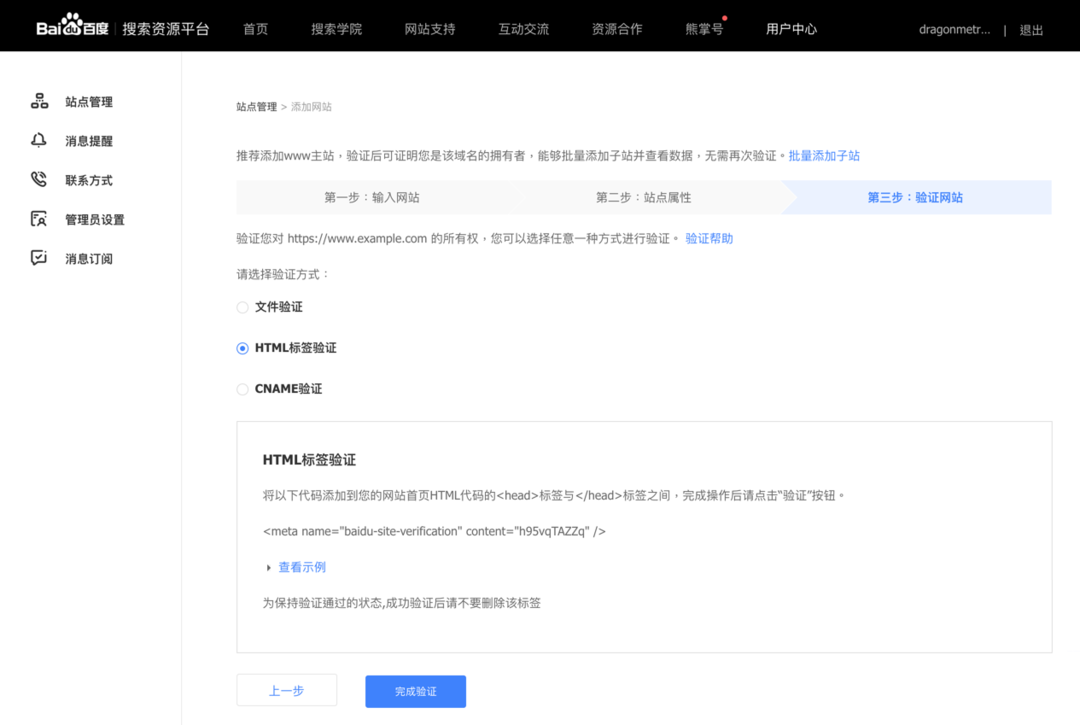
Connecting translation plugins with Baidu
Translation plugins often dynamically generate localized versions of your pages, sometimes making it harder for search engines to crawl them. Connecting your plugin outputs with Baidu ensures translated pages are properly indexed instead of being missed or treated as duplicate content.
For example, if your plugin automatically creates Chinese versions of product pages, you need to verify that Baidu can crawl and render them. Some plugins allow you to generate static versions of translated content, making it easier for Baidu’s crawler to access. Without this step, your Chinese pages may never appear in Baidu search results, no matter how well-written they are.
Using a plugin like Linguise, which generates crawlable static pages, ensures that Baidu can properly index localized content without missing critical pages. This improves visibility and prevents wasted SEO efforts, allowing your Chinese audience to find the translated pages you’ve worked to optimize reliably.
Managing sitemaps and URL structures

Sitemaps play a big role in helping Baidu understand your site’s structure. Unlike Google, Baidu is less forgiving regarding broken or missing links, so a clean, updated sitemap is essential. It should include all translated pages with their proper URLs to maximize discoverability.
Choosing the right URL structure is also important. For instance, using subdomains such as cn.example.com or subdirectories like example.com/cn/ is more effective than relying on query parameters (e.g., ?lang=zh). As shown in the example below, the website applies a subdirectory structure with the /cn/ tag to clearly indicate its Chinese-language content.
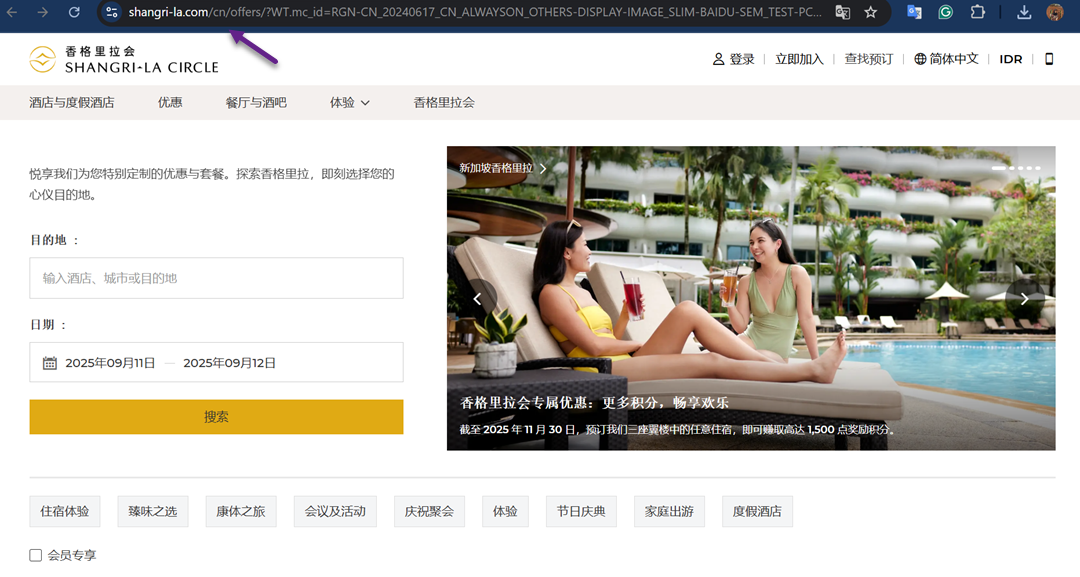
Clean structures make it easier for Baidu to crawl, and they help users quickly recognize they are accessing Chinese-language content.
Monitoring indexing and crawl reports
Once your site is set up, monitoring how Baidu indexes your content is critical. Baidu Webmaster Tools provides crawl reports that show which pages are being indexed, which ones are blocked, and if there are any errors preventing access.
Some translated pages do not appear in search results for multilingual sites. This could be due to technical issues like robots.txt restrictions or dynamic rendering problems. Regularly checking crawl reports lets you quickly identify these issues and adjust settings so Baidu indexes your Chinese content properly.
Integrating structured data for Baidu

Structured data helps Baidu understand your content better, especially when dealing with products, reviews, or events. While Baidu supports schema.org standards, it also has structured data formats that can give you an extra edge in Chinese search results.
For instance, if you run an e-commerce site, adding structured data for product price and availability can increase your chances of getting rich snippets in Baidu search results. This makes your listing more attractive to users and can improve click-through rates. By ensuring your translation plugin integrates structured data into localized pages, you boost both visibility and user trust.
Here is an example of a rich snippet display on Baidu that shows several elements such as product images, prices, and brief descriptions directly in search results:
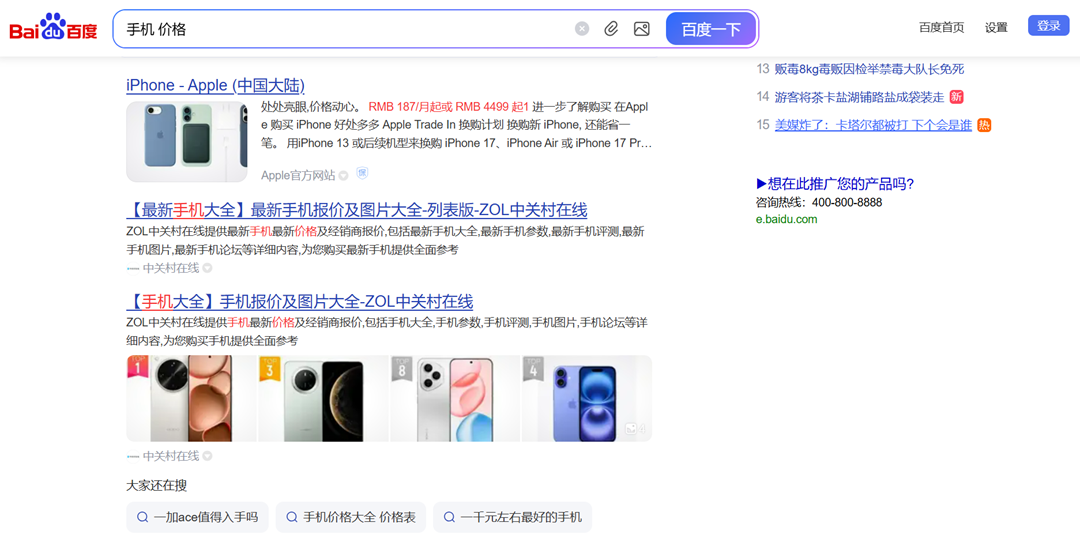
Performance tracking and analytics
Baidu Webmaster Tools offers insights into keyword performance, traffic trends, and user behavior. This data is invaluable for multilingual sites because it shows how Chinese users interact with your translated content compared to your original site.
For example, certain translated blog posts attract high traffic but have a high bounce rate. This could mean the translation isn’t aligning well with user intent, or the page format isn’t optimized for Chinese readers. You can continuously improve engagement and rankings by combining performance data with translation refinements.
Compliance with Chinese internet regulations

China has strict internet regulations that directly affect how websites can operate and appear in Baidu search results. Compliance isn’t optional for businesses using translation plugins—it’s essential for visibility and trust. Understanding licensing, hosting, and content restrictions will ensure your multilingual site not only reaches Chinese users but also stays online without penalties.
ICP license requirements and local hosting
One of the biggest differences when targeting China is the ICP (Internet Content Provider) license. Any website hosted on servers within mainland China must have an ICP license, issued by the Ministry of Industry and Information Technology (MIIT). Without this license, your site can be blocked or severely limited in performance on Baidu.
For example, if a company hosts its Chinese-language site on servers located outside China, users may experience very slow loading times, and Baidu might not prioritize those pages. By using local hosting providers and securing an ICP license, businesses ensure smoother access, faster performance, and better trust signals for Baidu’s algorithm.
Content restrictions and censorship rules
China has strict content rules that go beyond typical SEO considerations. Topics related to politics, sensitive historical issues, or restricted industries may be flagged, censored, or result in penalties for your site. This means translation plugins should not just translate literally but also adapt content to avoid conflicts with local laws.
For instance, a global news company translating content into Chinese must be cautious about sensitive terms that might trigger censorship. Adjusting or omitting certain phrases ensures compliance while still delivering valuable information. Being aware of these restrictions also helps build user trust, as audiences expect websites to follow local standards.
Plugin compatibility with Chinese regulations
Not all website translation plugins are designed with China’s unique digital environment in mind. Some rely heavily on third-party APIs that are blocked or extremely slow within the country, making localized content difficult to access for users. This can harm user experience and limit your site’s visibility in Baidu search results. To avoid this, businesses need plugins that support static rendering of Chinese pages while aligning with Baidu’s crawling preferences.
For example, a plugin that only generates dynamic JavaScript-based translations might work fine for Google but fail on Baidu, since Baidu’s crawler still struggles with heavy JavaScript rendering. A better choice is a solution that creates fast-loading, crawlable static pages hosted on servers accessible from within China. This ensures your translated content remains visible, indexable, and compliant with local performance standards.
Unlike many plugins that encounter these pitfalls, Linguise is optimized for global performance. It delivers static, SEO-friendly Chinese pages that load quickly and are fully crawlable by Baidu. This approach helps your site comply with Chinese regulations and ensures better ranking opportunities in Baidu’s search ecosystem. Linguise is a reliable way to reach Chinese audiences without compromising speed or search visibility by avoiding blocked APIs and slow-loading scripts.
Conclusion
Advanced Baidu SEO integration it’s a strategic necessity for businesses entering the Chinese digital market. From understanding Baidu’s unique ranking factors to ensuring compliance with strict internet regulations, success depends on adapting every aspect of your website. High-quality translation, seamless technical integration, and localized SEO strategies transform a simple website translation into a powerful tool for growth in China.
Businesses need solutions built for the Chinese market to achieve this effectively. Using Linguise, you can combine automatic translations with live editing, deliver static crawlable pages optimized for Baidu, and ensure compliance with local regulations. This gives your website the best chance to rank higher, engage Chinese users, and expand your brand presence in one of the world’s most competitive online landscapes.

